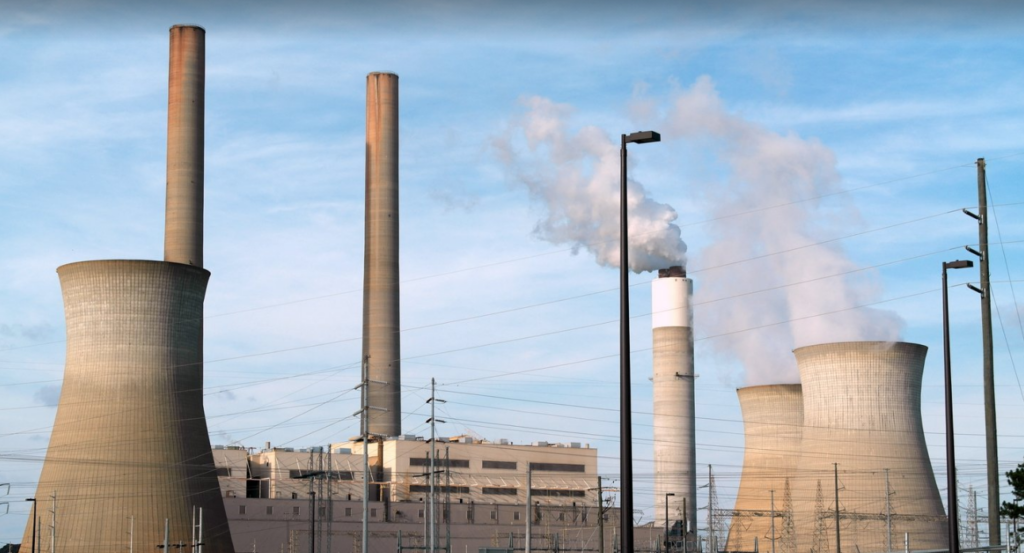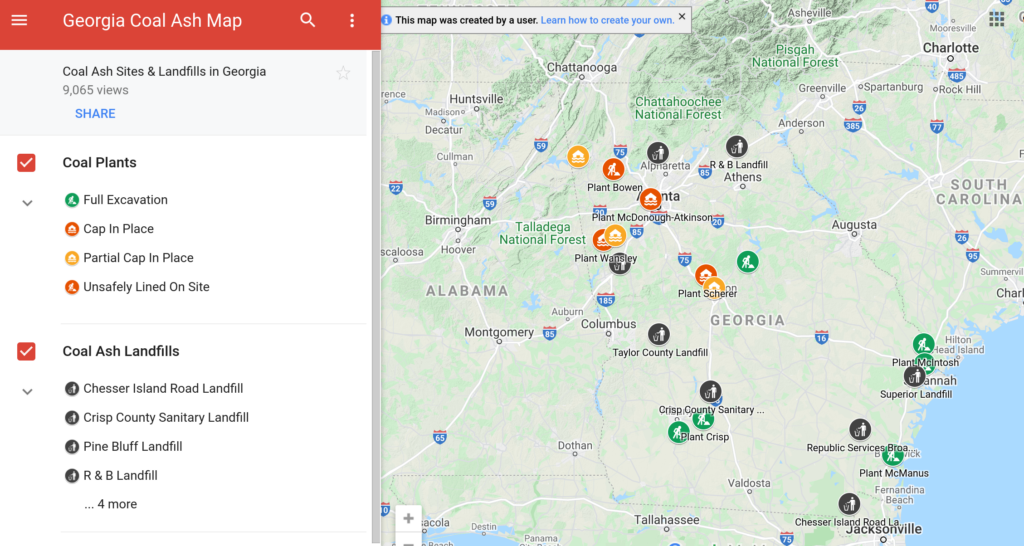
Georgia Power drew heavy criticism Thursday night over plans to bury more than 20 million cubic yards of coal ash at its Plant Bowen in Bartow County.
“Please don’t gamble with our lives,” Vicki Freeman of Atlanta pleaded during an online public hearing on the proposal. “Mandate that Georgia Power move that coal ash to a safe landfill with a proper liner.”
The Georgia Department of Natural Resources’ Environmental Protection Division held the online hearing as part of a public comment period that will last until Nov. 15.
>> Read the public comment announcement.
Plant Bowen is the nation’s ninth-largest power plant in net generation of electricity, according to Georgia Power. Nine miles southwest of Cartersville, it began operating in 1975 and is bordered by the Etowah River and Euharlee Creek.

Georgia Power wants to install a liner under the plant’s Ash Pond 1 and bury the residual coal ash over a 254-acre area, making it the largest single coal ash site in Georgia, according to the Sierra Club. Coal ash is the byproduct of burning coal for electricity.
>> Read about Plant Bowen from Georgia Power
Almost all of the commenters during the public hearing were concerned over sinkholes that could cause the toxic coal ash to leak into nearby rivers and creeks as well as groundwater supplies.
“I was astonished at its size,” said LaGrange resident Judy Lawrence. “My parents always said, ‘Do something right the first time and you won’t have to do it again.’ Georgia Power hasn’t gotten that message. The company knows the type of land they’re building this on, and they know the risks.”
In 2002, a four-acre-wide sinkhole opened up underneath Plant Bowen that released 2.25 million gallons of coal ash into Euharlee Creek. That spill caused arsenic levels in the creek to spike to levels 120 times higher than federal drinking water standards allow. More sinkholes developed in December 2008.
>> Read Georgia Power’s plan to close Plant Bowen’s ash pond
“Simply lining the coal ash dump will not prevent groundwater contamination,” said Dawn Cason of Powder Springs. “We know the plant rests on unstable terrain. Previous sinkholes have developed. It’s not a matter of speculation but only a matter of time.”
Coal ash contains contaminants including mercury, cadmium and arsenic that can pollute groundwater and drinking water.
“It’s like Georgia Power is playing Janga, waiting for this coal ash to topple into our water,” said Atlanta’s Neil Sardana. “It’s incomprehensible this plant is even being considered. It will poison people and put our lives and health at risk. It’s absolutely insane.”
The EPD’s permitting program for ash ponds due to be closed in place requires post-closure care for 30 years, including ongoing maintenance of the cover and groundwater monitoring. Results from monitoring must be reported at least twice a year and posted on Georgia Power’s website.
“What’s troubling is that nothing in either the EPD’s requirements or Georgia Power’s proposal address the instability of this terrain,” said Jesse Demonbreun-Chapman of the Coosa River Basin Initiative. “Thirty years of post-closure maintenance is also insufficient. Thirty years is the same time between the plant’s startup and the first appearance of sinkholes in the area.”
After the public comment period ends, the EPD will respond to comments in writing, post comments on its website and make changes to Georgia Power’s permit based on comments from the public.
This story is available through a news partnership with Capitol Beat News Service, a project of the Georgia Press Educational Foundation.
